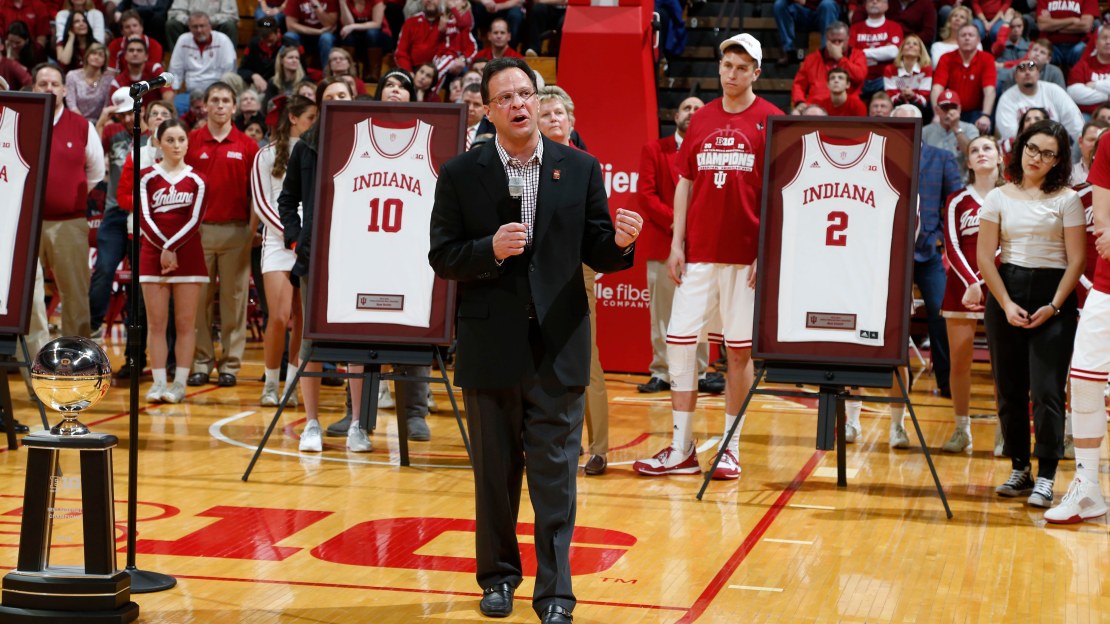Jon Crispin, BTN men's basketball analyst, April 12, 2017
Coaching changes may be exciting for some, but it is always a tough experience for college basketball analysts and broadcasters who have spent years developing a personal relationship with a particular head coach and his-her staff. From a personal standpoint, it is tough to see someone who dedicated so much of his-her life to serving a university and its fan base, as well as all of the individual players, staff and personnel involved with the program to be shown the door so suddenly once the season is over.
[btn-post-package-v2]
Message boards, Twitter feeds and comments below an online article rarely take into account or consider the human side of the business. It's clearly easy to forget that the coaches who get criticized and personally attacked for doing the job that they love at a high level did not get there without hard work, humility and extreme sacrifice. Perceived "failure" from a win-loss standpoint should never lead to personal attacks that include everyone tied to the individual, including young family members and friends.
The comments you see from fans and self-proclaimed and anointed pundits, as well as university administrators, remind me that the success of a coach rarely takes into account the necessary steps and processes required to build a lasting championship culture. If the focus is only on hanging banners and winning championships, the true success of a program and the staff in charge is often overlooked and undervalued.
A university administrator's job has certainly changed with college sports programs becoming big business units that also add to the culture of an institution. That being said, the demands placed on an administration to deliver results often put that same pressure on coaches to do the same. The problem is, results that focus primarily on the end goal often minimize the value in the process. The process of building culture, setting and managing expectations, holding individuals accountable and constantly developing and maximizing talent is what leads to the end goal, but is rarely ever a process that a coach is rewarded for. As a matter of fact, coaches are often dismissed before you see the real fruits of their labor.
I don't write this to express frustration for the dismissal of some high quality individuals that I have had the pleasure of getting to know and learn from. I write this in hopes of helping fans and administrators take notice and place value on the process of building a true winning culture that coaches are responsible for developing and maintaining. This is something that Rutgers' Steve Pikiell and his staff have succeeded in doing, and will continue to build upon. From his first day on the job, Pikiell began to build a foundation and set goals pertaining more to development and less about wins and losses. At Rutgers, it is understandable that winning championships simply cannot be the initial focus when hiring a new coach. Rather, the focus is on creating the process to build a champion and building a system that truthfully maximizes the potential of all individuals involved. For this fact alone, I have all the confidence in the world that Pikiell and his staff will succeed beyond all expectations.
For Archie Miller and Brad Underwood, managing expectations and focusing on the development of individual staff and personnel will be one of the most important yet undervalued aspects of their job. If the fan base and institution can grasp and find value in the process of developing a winner, those two coaches will be in a position to focus their efforts on what it truly takes to get there and not just the goal of hanging a banner. There's no doubt that programs like Illinois and Indiana will find success in and throughout the next decade. Whether that success comes in the form of Big Ten championships or NCAA tournament appearances is yet to be determined.
One of the reasons I read about why Tom Crean was let go at IU really bugged me. The reason was inconsistency. It didn't bug me because it could be argued to be untrue. It bugged me because it was contradictory to the mission. It was contradictory to the projected goal of the administration. The published and defined goal was to win championships and hang banners. If consistency was truly the goal, then more attention would be given to the process by which consistency can be achieved.
For Miller and Underwood, I am excited to spend time with them and better understand their desires, ambitions and their approach to the responsibility they've been given. But first and foremost, I wish them nothing but the best in their new endeavor. I hope they get the support (at every level) that they deserve and require for them to succeed in every aspect of the job.







